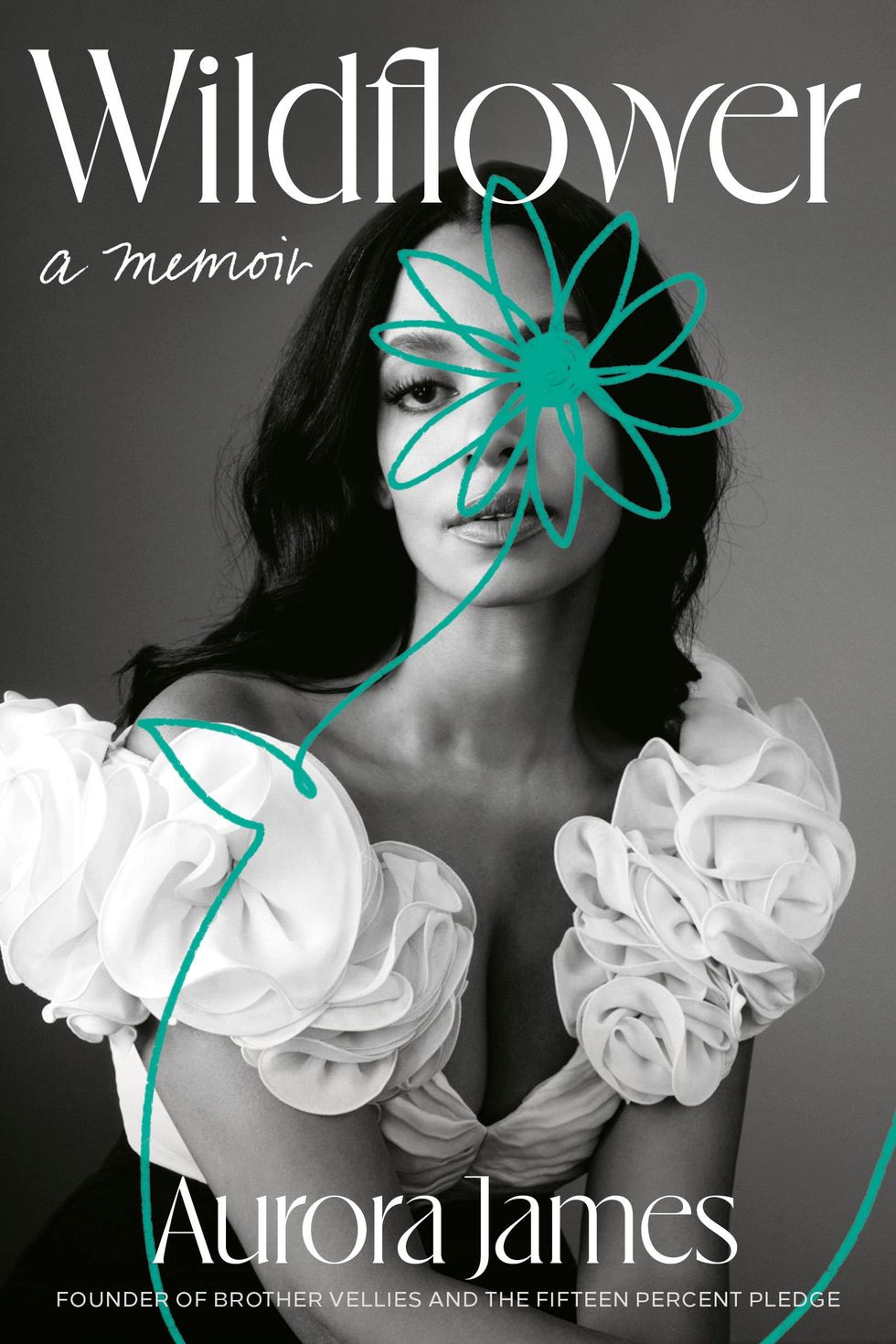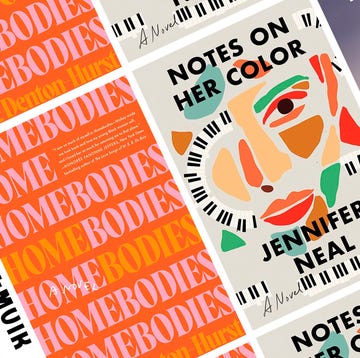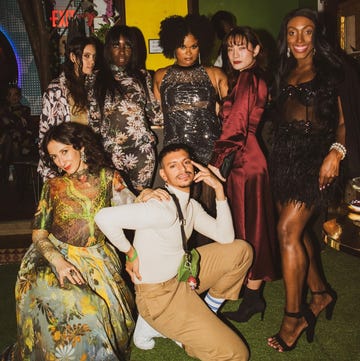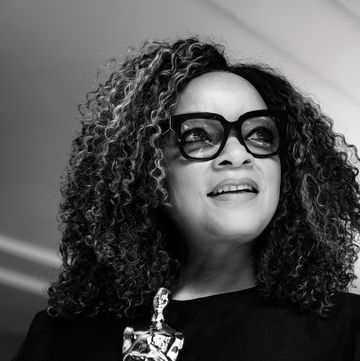Fashion is a fickle world—one that’s all about keeping up appearances. Aurora James, the designer behind Brother Vellies and founder of the industry-shifting Fifteen Percent Pledge, knows this maybe more than anyone.
Over the last decade, James has established herself as a force within fashion, thanks to her intentional approach to design and production. Brands are quick to describe their customer bases as communities, but with Brother Vellies, it’s not just marketing language. The appeal was never just about how many famous feet wear James’s handcrafted shoes (though there are many) so much as the mission of employing and empowering women in South Africa, Kenya, Mexico, Haiti, and elsewhere via the vehicle of style.
From the outside, James has always been the perfect ambassador for her own brand; her sense of style, her personal taste, and even her Instagram grid helped elevate her company from a flea-market find into a fashion magazine mainstay. But now, in her new memoir, Wildflower, which comes out today, James is pulling back the curtain on what building her brand has really been like.
More From Harper's BAZAAR

“There was no purpose in telling my story if I wasn’t gonna be really, brutally honest about it. Sometimes you have to be willing to lose a little bit of your shine if it’s going to help other people—especially other young people who can realize that they’re not that different from you,” James tells BAZAAR from a Lower East Side hotel just blocks away from where she originally launched Brother Vellies almost a decade ago.
“The mistakes that people have made or the bad things that have happened to them aren’t going to stop them from growing up to be exactly who they want to be,”she says. “The more that we can have people who are quote-unquote successful tell stories about these [imperfect] parts of their lives, I think the better off we’ll be in terms of removing some of these unconscious biases within us.”
In Wildflower, James doesn’t hold back. She movingly intertwines memories of her youth with deeply honest accounts of the life she leads today as a designer and entrepreneur. She details a lifelong tumultuous relationship with her mother, sexual abuse by her stepfather, many deadbeat boyfriends, and even a brief stint in jail in her early twenties that jolted her into realizing she needed to find her calling. James’s retelling of her childhood with her mother—who comes off as wise and loving, but free-spirited almost to a fault—makes up some of the most relatable chapters of the book.
“I spent a lot of time actually being angry at my mom in my teenage years, which clearly comes out in the book in a lot of ways,” James says, laughing. “Being able to release a lot of that anger at her, however, is what has helped me so much as an adult. My mom obviously made some very clear mistakes, but we spend so much time comparing our parents to these Leave It to Beaver or Cosby family archetypes, especially as it pertains to women. It’s a great disservice because [you are your own self] before you’re ever a mom. I just wanted to hold space for that and to hold space for how complex women’s relationships can be.”
While Aurora James has worked hard to craft an image of herself as a businesswoman, Wildflower depicts her messy and often debilitating journey toward building her brand. Like so many people, famous or not, James has hidden behind her social media presence. Search her name and you’ll find beautiful lookbook imagery for Brother Vellies or pictures of her on the steps of the Met Gala alongside Solange Knowles or United States Representative Alexandria Ocasio-Cortez. Maybe you saw her featured in a spread for a magazine or stylish snippets of her life in her Bed-Stuy apartment. Though James has always been vocal about the struggles of running a small Black-owned business, even her most fervent supporters could have never guessed that during some of her most lauded moments as a designer, she was actively battling a predatory loan shark. (Worse, she’d originally gotten involved with him on the advice of a member of the CFDA.)
“Obviously so many amazing things can happen on social media. I launched the Fifteen Percent Pledge on social media. We talk to a lot of our customers and our community base on social media,” James explains. “Even when horrible stuff was happening to me and I was puking in an alleyway in the Garment District because I was terrified to go into [the loan shark’s] office, I still felt successful in some ways. The initial proposition that I was striving for, supporting those artisans—as long as that was happening, then I felt okay. There’s a ton of other designers that are in that same situation right now."
She continues, “With fashion, there is so much pressure to be so up all the time and project this image of luxury, and everything feels super competitive. I always knew this was a competition I was never going to win—so I may as well just make friends along the way. That’s been the way I’ve approached it. Talking about the financial stuff that was going on at that time was hard. But that experience is also why I’ve spent the last four or five years of my life becoming as much of an expert on all of these things as I can be.”
The memoir sees James reclaim not just her story, but also her public image. It’s an understatement to say that no part of her career was handed to her. In what could be seen as a controversial line from the memoir, she declares that she doesn’t believe in “Black Girl Magic,” but rather in the power of a Black woman’s hard work and determination.
“When that saying started being a big thing, I remember it was one of the hardest summers of my life and I was really busting my butt to get things across the line. You know, I wear a lot of dresses. I love flowers. So people always said ‘Black girl magic!’ to me. In the beginning I loved it, but then very quickly I realized this is not magic!” she says. “Do not write off the fact that I have a fashion brand that I launched for $3,500 in a flea market, that’s been profitable every single year that I’ve been in business, as magic. We do these things to women all the time where it’s—they need to make us cute and packageable and digestible and nonthreatening. For so many years now, Black women have been forced to make everything out of nothing. And while that can look magical, it’s actually fucking hard work.”
As of now—as a business owner, a designer, and now an investor—James has never felt more free. This year marks the 10th anniversary of Brother Vellies and has the designer reflecting on not just what comes next for her in this moment, but also on how Wildflower will change the narrative surrounding her success.
“My friend said something to me the other day like, ‘You constantly put imperfect things out into the world and for some reason, you aren’t afraid of people judging you for it,’” she says. “But I am afraid. I’m always afraid! There are really difficult things that I wrote in this book and I’m afraid of people being dismissive. But I just think we can’t always hold each other to these standards of perfection anymore.
“So much of what feeds me is collaborating with other people. Yes, you’re making something in a very wonderful way, which is what we’re doing, right? But it’s also about What does that logo mean to you? What does it mean to your community? What does it mean about the way that you see the future? I’m just so happy that we’ve been able to put so much love and progress into the valued ecosystem of the brand,” says James. “That to me is what luxury is about.”
Bianca Betancourt is the culture editor at HarpersBAZAAR.com, where she covers all things film, TV, music, and more. When she's not writing, she loves impulsively baking a batch of cookies, re-listening to the same early-2000s pop playlist, and stalking Mariah Carey's Twitter feed.















